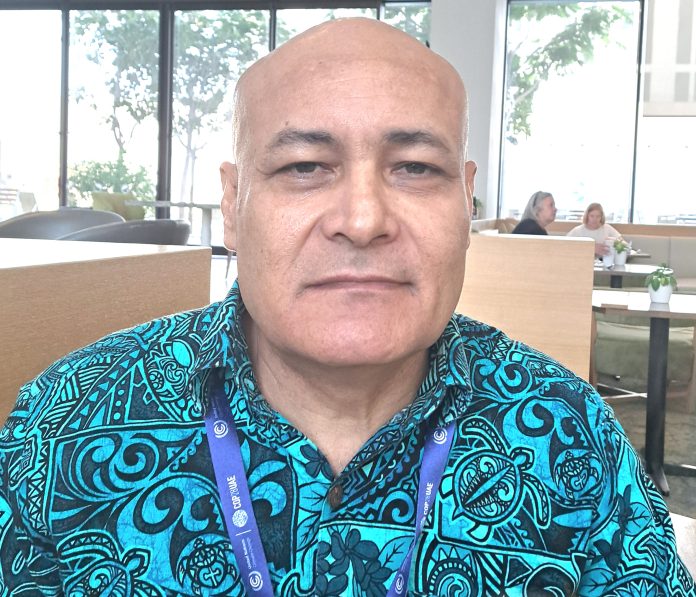By Pita Ligaiula at COP28 in Dubai, UAE
The Pacific Islands Forum Programme Adviser for Resilient Development Finance, has shared his thoughts on Australia’s offer to provide refuge to Tuvalu citizens in the face of climate change.
In a PACNEWS interview, Karlos Lee Moresi, a Tuvaluan himself, expressed a mix of scepticism and optimism regarding the agreement, emphasising the need for careful consideration and strategic planning.
Moresi acknowledged the political dimension surrounding the issue.
“I think it’s being politicised. The intention was the right intention, noting that the Pacific Leaders just approved the climate change mobility framework.”
He pointed out that the core of the Australia-Tuvalu agreement is focused on mobility with dignity, with an emphasis on avoiding the designation of climate refugees.
Moresi highlighted the importance of preferences to remain at home but raised concerns about the inevitable scenario where staying at home becomes untenable.
“My viewing of the agreement is not compulsory; no one is forcing you to go, but you have the option to go, Moresi told PACNEWS regarding the voluntary nature of the agreement.
He acknowledged existing criticisms, particularly regarding security concerns, urging Tuvalu to carefully consider how to operationalise such aspects.
Moresi also recognised the sovereignty issue, echoing the sentiments of some former leaders in Tuvalu who have expressed reservations about external influence.
Addressing the root causes of migration, Moresi probed into the complex motivations behind people’s decisions to move.
“Climate change is being used as the reason, but if you ask most people, it’s for economic and social reasons,” he said.
Drawing attention to an opportunity for Tuvalu, Moresi suggested leveraging migration to raise the standard of living in the island nation.
He advocated for an open border policy in the region, citing the success of labour mobility schemes as a potential model.
Moresi said that giving people the freedom to move and work, while maintaining ties to their homeland, could offer a sustainable solution to the challenges posed by climate change.
In a climate where the impact of climate change is increasingly felt, Moresi’s perspective provides valuable insights into the considerations and complexities surrounding the proposed refuge offer from Australia.
The interview highlights the need for a comprehensive approach that balances the preservation of sovereignty with practical solutions to address the socio-economic challenges faced by vulnerable nations like Tuvalu.
SOURCE: PACNEWS














